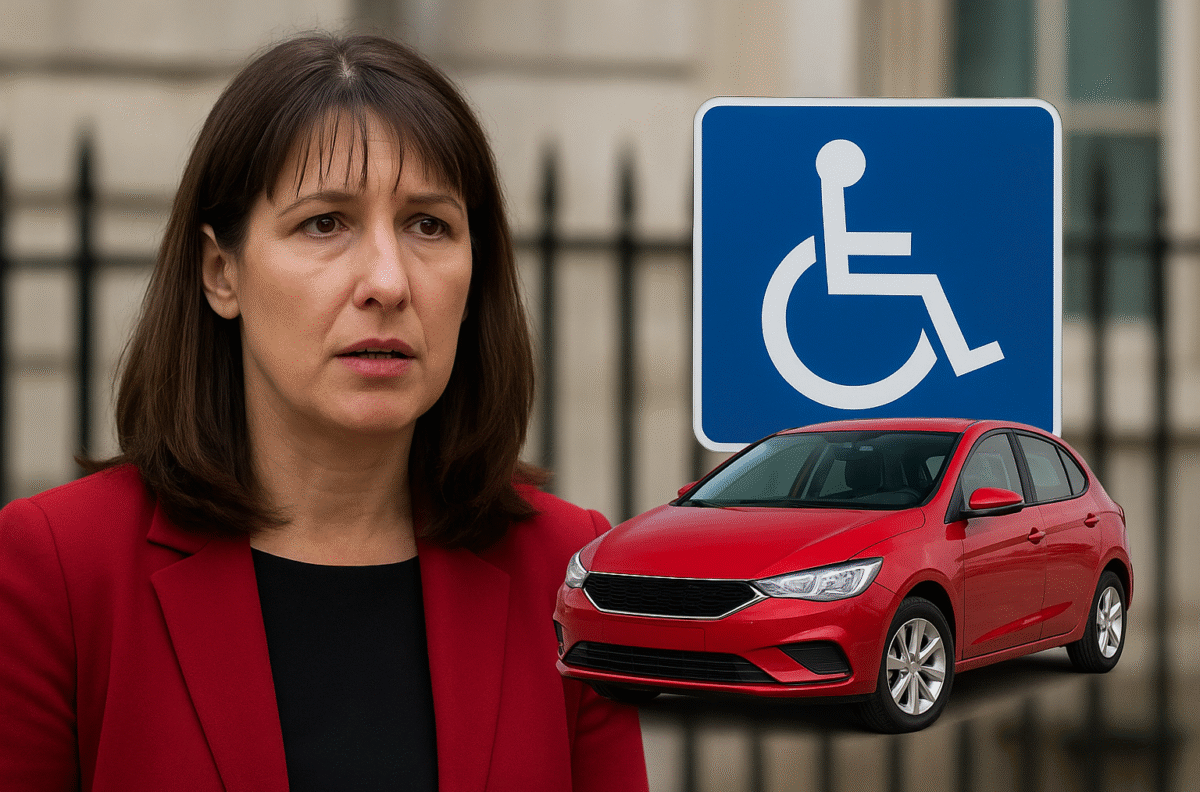Will Rachel Reeves slash disability car tax breaks? £1 billion Motability shake-up looms

Will Rachel Reeves slash disability car tax breaks? £1 billion Motability shake-up looms”
Chancellor Rachel Reeves has signalled that welfare reform is inevitable this parliamentary session — warning she “can’t leave welfare untouched” — as the Treasury reportedly eyes eliminating up to £1 billion in tax breaks tied to the Motability vehicle scheme for disabled people.
In a candid interview ahead of the looming budget, Reeves reiterated her position that the status quo on benefits is no longer viable. She told Channel 4 News, “We can’t get to the end of this parliamentary session and I’ve basically done nothing … We have to do reform in the right way and take people with us.” Previously, she has acknowledged that cuts and tax rises will probably form part of her fiscal toolkit.
Earlier this year, the government backed off from deep cuts to disability benefits after a rebellion among Labour backbenchers. Yet the campaign to pare back the “health” component of Universal Credit for new claimants from April 2026 is still underway.
One of the sharpest proposals currently under review: scrapping the VAT and insurance premium tax exemptions on Motability cars. Under the current arrangement, disabled claimants leasing vehicles via the scheme don’t pay these taxes. Whitehall insiders say ending those exemptions is under serious consideration, although no final decision has been made yet. They also suggest that narrowing eligibility is less likely, but removing tax perks is viewed as more feasible.
Another idea gaining traction is excluding luxury brands — such as BMW or Mercedes — from the scheme. Roughly 40,000 out of the 800,000 Motability cars are premium models, typically funded via an “advance payment” top-up by the claimant. Reimposing tax on these vehicles could push more users into needing up-front payments, potentially raising as much as £1.2 billion (though some sources caution collections may fall short).
Though technically not a direct welfare-benefit cut, revising Motability tax reliefs would hit disabled people hard — and spark fierce backlash. James Taylor, strategy director at charity Scope, warned the move would “heap extra costs on to disabled people all over Britain,” noting that adapted cars often require special modifications, equipment, or caregiver support. “Life costs more if you are disabled,” he added, urging the government not to compound isolation for vulnerable groups.
Emma Vogelmann, co-CEO of Transport for All, described the scheme as a lifeline. “Public transport is often unusable — broken pavements, unserviced routes, crowded trains we can’t navigate. A Motability car lets us work, run errands, do the school run. Scaling back that access could lock disabled people out.” She asked pointedly: “Does the chancellor want to take away our freedom?”
On the political front, the Conservatives have long pushed cuts to Motability. Helen Whately, their shadow work and pensions secretary, claimed Reeves was “following our lead.” She argued that the scheme should focus only on serious disabilities and proposed excluding low-level mental health or neurodiversity claims from entitlement. She also vowed to eliminate “taxpayer funding for luxury cars” within the scheme to prioritise genuine support.
In Parliament, Labour MP Rachael Maskell — a vocal critic of earlier disability cuts — urged the government to co-produce reforms with disabled communities. She warned that “random top-slicing or cuts often cost more in the long run.”
A Treasury spokesperson declined to comment on speculative tax changes ahead of the fiscal event. Meanwhile, Reeves is gearing up to unveil a tough fiscal package on 26 November, combining tax increases and spending cuts to counter weaker growth forecasts.
The Institute for Fiscal Studies has already flagged that Reeves may be forced to revisit welfare reductions alongside tax hikes. Suggested measures include scrapping the pensions triple lock, curbing disability payments, and limiting spending growth on special educational needs. An updated Office for Budget Responsibility model is expected to show public finances are £10–20 billion worse than previously thought — intensifying pressure on the chancellor. To protect against market volatility, Reeves is eager to rebuild “headroom” under her fiscal rules, especially given the £7 billion cost incurred from earlier U-turns on winter fuel payments and welfare.
FAQ
Q: What is the Motability scheme?
A: The Motability scheme allows disabled individuals to lease a vehicle using their Personal Independence Payment (PIP) or other qualifying mobility benefits. The vehicle is typically leased for three years, after which it is sold onward.
Q: What tax breaks does Motability currently enjoy?
A: Under current rules, vehicles leased through Motability are exempt from VAT and insurance premium tax (IPT).
Q: What changes is the Treasury considering to Motability?
A: Proposals under review include ending VAT and IPT exemptions, and removing luxury brands (BMW, Mercedes) from scheme eligibility. Reducing general eligibility has been discussed but is considered less likely at this stage.
Q: How much revenue could these changes generate?
A: Some estimates place potential revenue at around £1.2 billion annually, though insiders warn actual collections may fall short of that target.
Q: Would existing claimants be affected?
A: It is not yet clear. Some proposals suggest protecting current users while applying changes to new entrants. No final decision has been made.
Q: Who opposes these changes?
A: Disability advocacy groups like Scope, Transport for All, and members of Parliament have cited increased costs, reduced mobility, and risk of exclusion for disabled people.
Q: When would changes take effect?
A: If approved, the earliest changes could accompany the next budget (scheduled for 26 November), but implementation would depend on legislative processes and consultations.
Q: What other welfare cuts is the government considering?
A: Beyond Motability, the chancellor may revisit cuts to disability benefits, cancel the pensions triple lock, and constrain growth in spending on special educational needs.

